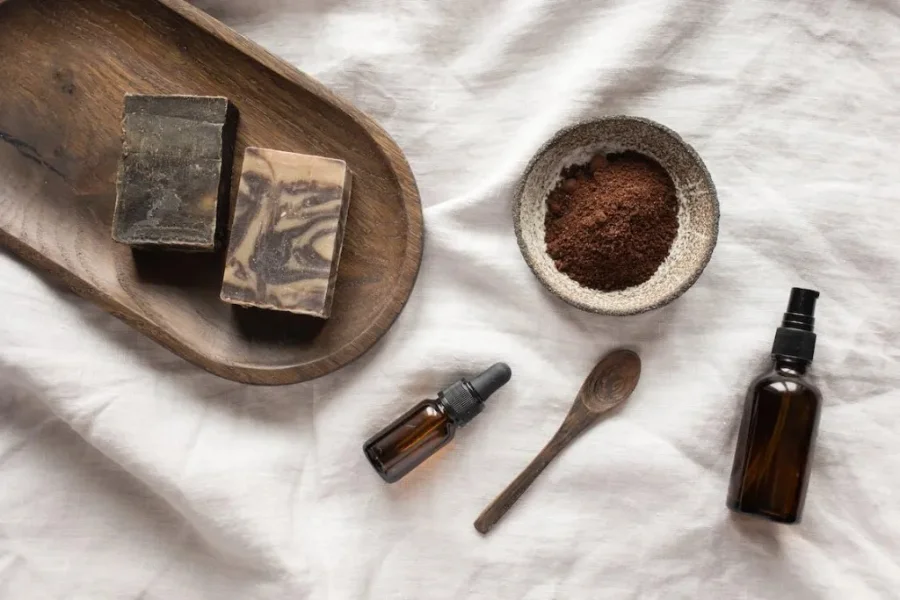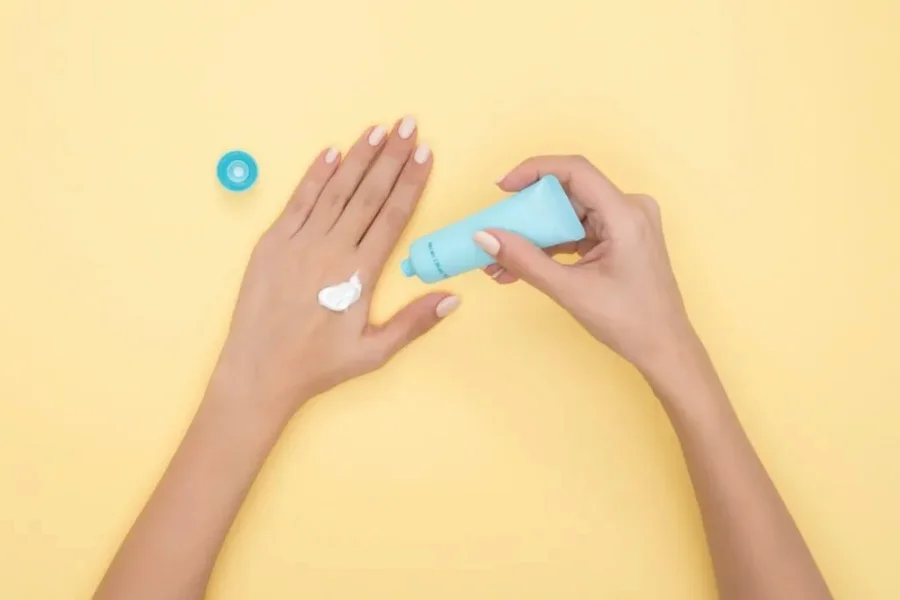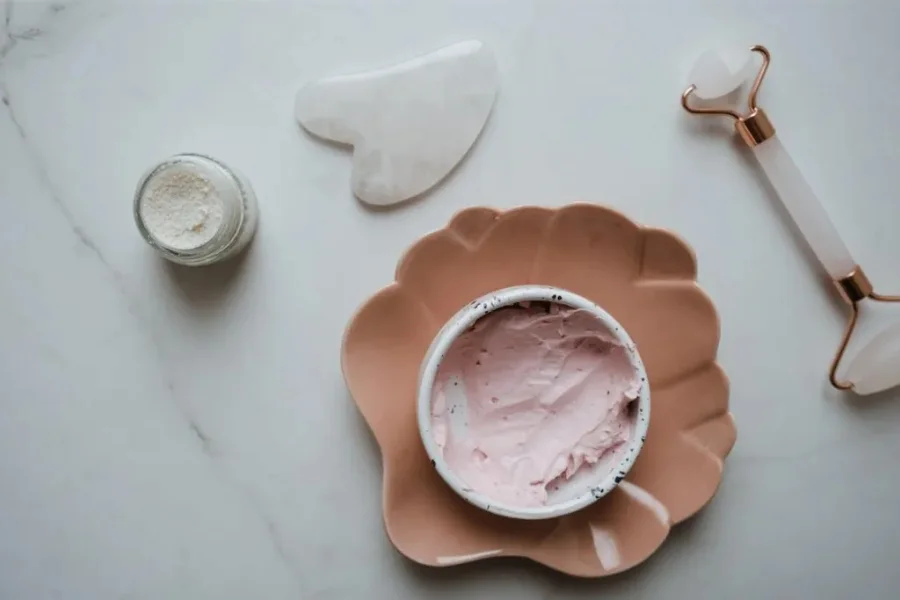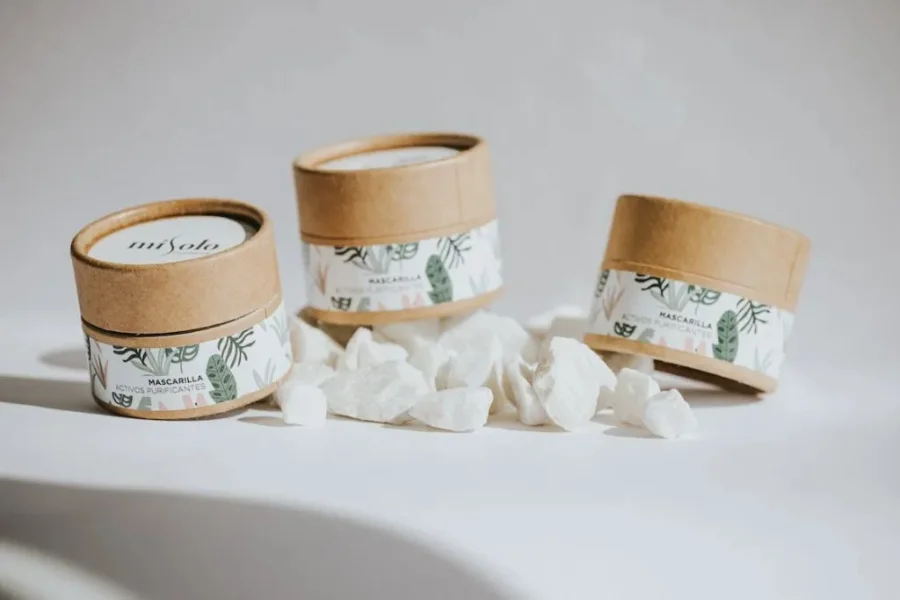AI and tech will propel personalized and precise solutions that will shape skincare routines in 2026. Stress-fueled lifestyles will see more conscious and intuitive skincare formulations.
After a few years of turbulence and uncertainty, by 2026, consumers will be looking for skincare solutions to restore balance.
Formulations that work smarter rather than harder will be preferred together with products that value science and sustainability equally.
So read on to discover seven forecasted trends in skincare for 2026.
Table of Contents
Skincare global market overview
7 forecasted trends in skincare in 2026
Final thoughts
Skincare global market overview
The global skincare market is forecasted to reach US$ 187.68 billion by 2026. It will account for 27% of the global cosmetics market.
A continued focus on skincare and health will continue to increase the demand for skincare products. Further, external pollutants, misuse of active ingredients, and rising stress levels contribute to the rise of skin conditions, including rosacea, psoriasis, acne, and atopic dermatitis.
A 2022 study by JEADV across 27 European countries found that 43% of patients had experienced at least one dermatological condition within the last 12 months.
71% of consumers across the 18 countries self-reported having sensitive skin, with an increase of 55% in two decades. Thoughts, emotions, and feelings drove intuitive routines to thrive in more nurturing narratives surrounding cleansing and acne care.
7 forecasted trends in skincare in 2026
Cosmos approved

Space will become a new frontier for technically advanced skincare. Anti-aging and ultra-protective skincare formulations are designed for harsh conditions in space and tend to utilize space technology pushing boundaries of efficacy.
US-based Delavie Sciences discovered a revolutionary ingredient, bacillus lysate, from an unknown microorganism found in the exterior of the International Space Station.The ingredient has enhanced UV resistance and is proven to safely absorb and block UV radiation.
Reduit, a Swiss cosmetic brand, recently developed a NASA-developed electromagnetic field technology to improve the absorption of active ingredients in the skin.
However, this trend will likely cause sustainability and ethical concerns due to testing and mining products in space. Further, human-driven space exploration will probably pollute the cosmos with pieces of machinery junk.
Made for melanin

Following trends from haircare and makeup categories, melanin-rich skincare moves from niche to necessity. Increased research on melanin-rich skin issues is driving a need for specialized skincare products for this skin type.
The Non-Toxic Black Beauty Project claims beauty products marketed for Black Women often contain the most toxins in the cosmetics industry. 77% of black consumers are influenced to purchase clean skincare products, compared to the 67% of white consumers that are influenced to purchase clean skincare products.
Melanin-rich skin is also underrepresented in clinical research, according to Intelligence: Skinclusivity. There is a wide gap in knowledge regarding ingredients, their effects, and what skin conditions are prevalent such as hyperpigmentation, sensitive skin, and eczema.
Next-gen cleansing

There is growing consumer demand for science-backed solutions and a continued shift to barrier-strengthening and repairing formulations. They will usher in a new generation of skincare cleansers that work as hard as their leave-on counterparts.
The global facial cleanser market is expected to hit a value of US$ 8.27 billion in 2030, fueled by the growing knowledge about the effects of external pollutants on the skin, makeup usage, and rising sunscreen.
The rising concerns about cleansers and the harsh ingredients on sensitive skin have created a short contact therapy where facialist hack ingredient-rich cleansers are left on the skin for up to two minutes.
Skin-sensitive consumers will seek multifunctional solutions to remove impurities and treat skin, sunscreen, and waterproof makeup by drying or stripping the skin. U.S brand Pevise released Gentle Amino Powerwash designed to remove all substances while smoothing uneven texture that disrupts the skin barrier.
Intitutive skincare

By 2026, one’s skin will be viewed as the outward manifestation of inner feelings. Coming from a period where skin has felt and shown the brunt of stress, hormonal changes, and lifestyle, a holistic approach to skincare will emerge.
Skin-sensitive consumers will have a more profound understanding that skin conditioning is fluid and will change multiple times during the day due to various internal and external factors. Ranges and products that adapt and flex according to skin care moods and needs will appeal to and restore the skin balance.
Further, as consumers become more informed on the impact of hormonal changes on their skin, various formulations will be offered to support skin’s adaptability.
Data formulated

Appealing to tech enthusiasts, developments in AI will fuel innovation in high-performance and personalized skincare routines and formulations that will revolutionize skincare.
Skin analysis tools will become more precise and accurate, offering targeted solutions and growing demand for science skincare. Skin Dossier, a beauty company, uses multiple diagnostics for personalized recommendations and data, including 3D hyper-spectral facial imaging, geolocation, and lifestyle quiz.
Rapid advancements in Artificial intelligence will see the technology being harnessed to create new biotech ingredients in the skincare market. US-based Revela uses AI prediction models to discover new molecules with targeted attributes with desired benefits and successfully launch two Al-inspired products.
Further, AI will be used to accelerate research in skin conditions too. Breakthroughs in AI allow users to see the efficacy of skincare formulations over time.
Love of leftovers

By 2026, there will be a dramatic pushback against wasteful industry practices in the skincare industry. The current concerns on the impact of beauty on the climate and environment will create pressure on the skincare industry to recycle and adopt alternative sourcing methods.
According to a study in the U.K, the country’s skincare users are wasting over £1 billion worth of abandoned, unused, and unopened products. The entire supply will be held responsible and no wasteful practices will be tolerated among Regen and Preservationist consumers.
The skincare industry will generate significant waste in the production process and this presents an opportunity to embrace mistakes. US brand Krave Beauty’s Waste Me Not Initiative is a good model that can be utilized to curb wastage.
Barrier proof breakouts

Adult acne rates among women have risen globally with a 2022 study revealing that the rates have increased by 10% fueled by lifestyle, stress, and hormonal imbalances. Due to the new challenges, new acne solutions are emerging working with the skin barrier.
Moving away from the harsh ingredients that temporarily control breakouts, barrier proof breakouts damage the skin barrier especially in terms of bacteria balancing.
Probiotic formulations tackling acne by balancing bacteria will dominate the market as more research focuses on skin microbiome. Canadian skincare brand Indeed Labs’ PH three-step range is designed to combat acne issues with microbiome-balancing ingredients that have proven to improve overall skin health.
Final thoughts
These seven trends are the future for skincare in 2026, highlighting a shift to innovation, sustainability, and microbiome ingredients.
With stress levels rising, empathetic skincare that supports life’s flows and ebbs are valued along with solutions that support mental and physical wellbeing. Tech and AI will streamline product development with efficiency and efficacy.
Businesses aiming to capitalize on these trends can invest in AI tools that accelerate skin research, and stock products based on the seven trends highlighted here.




